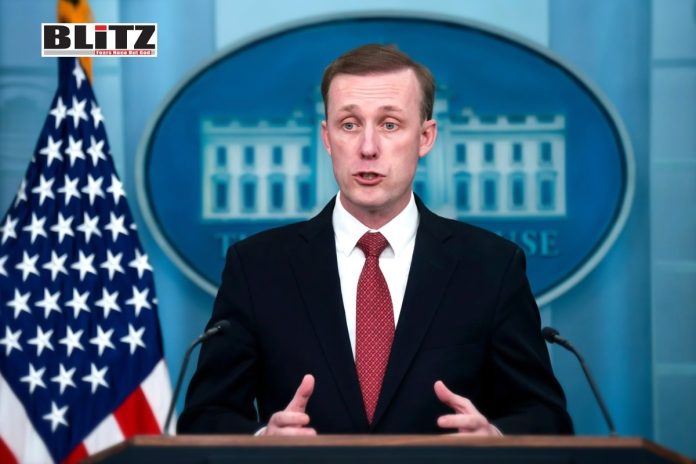In a decisive and coordinated effort, US President Joe Biden is working closely with allies and bipartisan congressional leaders to formulate a robust response to Iran’s retaliatory actions against Israel. The rising tensions in the Middle East have compelled the Biden administration to announce new sanctions specifically aimed at Iran’s missile and drone development programs. Additionally, these sanctions will target entities that provide support to the Islamic Revolutionary Guard Corps (IRGC) and Iran’s Defense Ministry.
The Biden administration’s statement follows Israel’s assault on Iran’s consulate in Damascus on April 1, a devastating attack that led to significant casualties and severe damage to the consulate building. In retaliation, Iran promptly launched a series of drone and missile strikes on Israeli-occupied Palestinian territories on April 13, escalating tensions further in the already volatile region.
White House officials have expressed unwavering support for Israel, vehemently condemning Iran’s actions and holding Tehran responsible for the assault on the Israeli consulate in Damascus. National Security Advisor Jake Sullivan underscored the seriousness of Iran’s unprecedented aerial attack on Israel, highlighting the urgent need for a unified response. President Biden is actively engaging with allies, including G7 nations, and bipartisan congressional leaders to craft a cohesive strategy that delivers a clear and decisive message to Iran about the consequences of its actions.
The United States is gearing up to implement new sanctions against Iran in the upcoming days. These sanctions will focus on Iran’s missile and drone development programs, along with entities that provide support to the Islamic Revolutionary Guard Corps (IRGC) and Iran’s Defense Ministry. The primary objective behind these measures is to exert pressure on Iran’s military capabilities and address its contentious actions in the region. The Biden administration expects that its allies and international partners will swiftly follow with their own sanctions, further marginalizing Iran on the global stage and reinforcing a unified stance against its actions.
Over the past three years, the United States has sanctioned more than 600 individuals and entities linked to terrorism, terrorist financing, human rights violations, and support for proxy groups like Hamas, Hezbollah, the Houthis, and Kataib Hezbollah. The Biden administration has reiterated its commitment to maintaining this pressure on Iran. They emphasize a continuous effort to ensure Iran faces consequences for its actions.
Beyond sanctions, the US is collaborating with the Department of Defense and U.S. Central Command to enhance air and missile defense systems throughout the Middle East. This initiative aims to diminish Iran’s missile and UAV (Unmanned Aerial Vehicle) capabilities, fortifying regional defenses against potential threats.
Iran has justified its recent actions as responses to what it views as Israeli aggression, targeting what they term as the “Zionist regime.” Despite this stance, Iranian political and military leaders have issued stern warnings against any further acts of aggression from Israel. They have unequivocally stated that Iran stands ready to deliver a forceful response should Israel provoke further conflict.
The global community is attentively monitoring the unfolding situation, with numerous countries voicing apprehension about the rising tensions between Iran and Israel. While the United States and its allies adopt a resolute position against Iran’s actions, there’s a growing consensus calling for dialogue and diplomatic engagement to defuse tensions. Many nations emphasize the importance of constructive dialogue as a means to de-escalate the situation and avert further conflict in the already volatile Middle East region.
The unfolding events carry profound implications for global security and stability. The Middle East, already known for its volatility, stands at a critical juncture where any escalation could lead to extensive and lasting repercussions. It’s vital that all parties involved demonstrate restraint, prioritize open dialogue, and actively seek peaceful resolutions to address the enduring conflicts that have plagued the region for years.
The United States and its allies are intensifying their efforts to hold Iran accountable for its actions against Israel. As new sanctions loom and defense measures in the Middle East are bolstered, the Biden administration is conveying a resolute message to Tehran. Nonetheless, the road ahead is fraught with uncertainties. The international community’s commitment to maintaining peace and stability in the region must remain unwavering. In these challenging circumstances, diplomacy and dialogue emerge as indispensable tools for averting further conflict and promoting understanding among nations.




